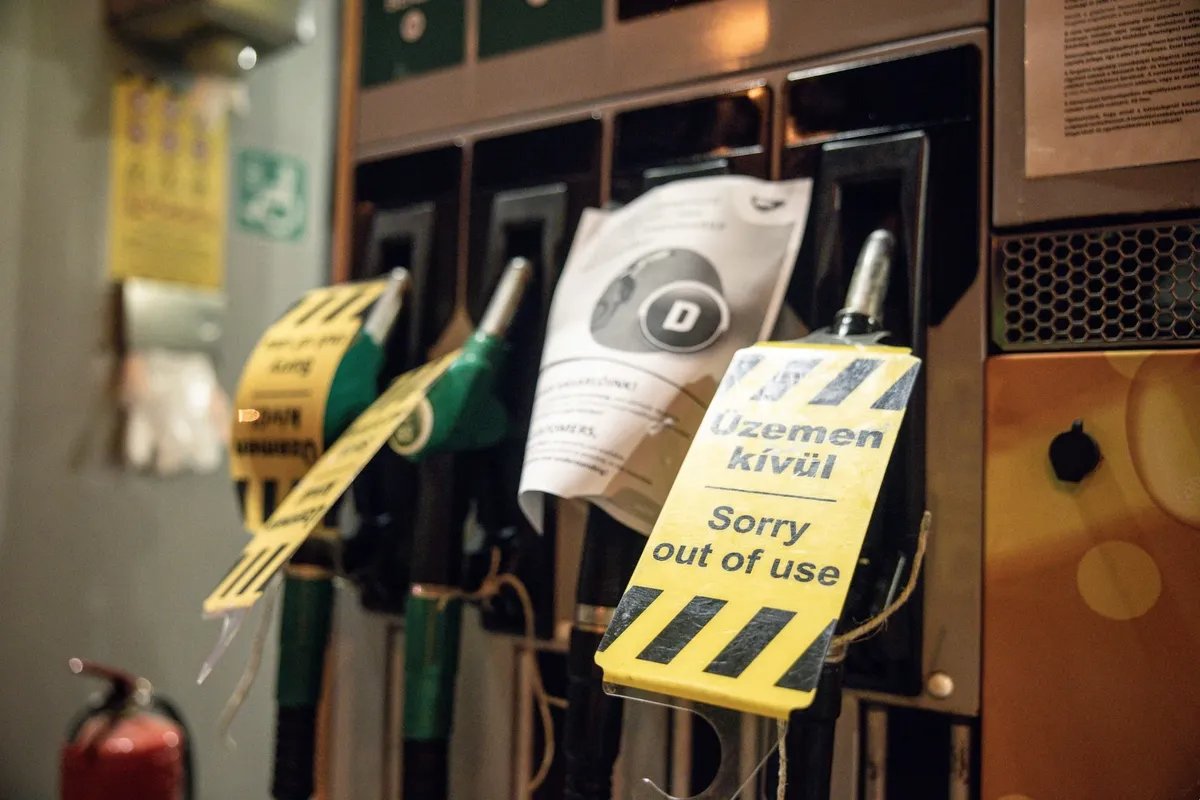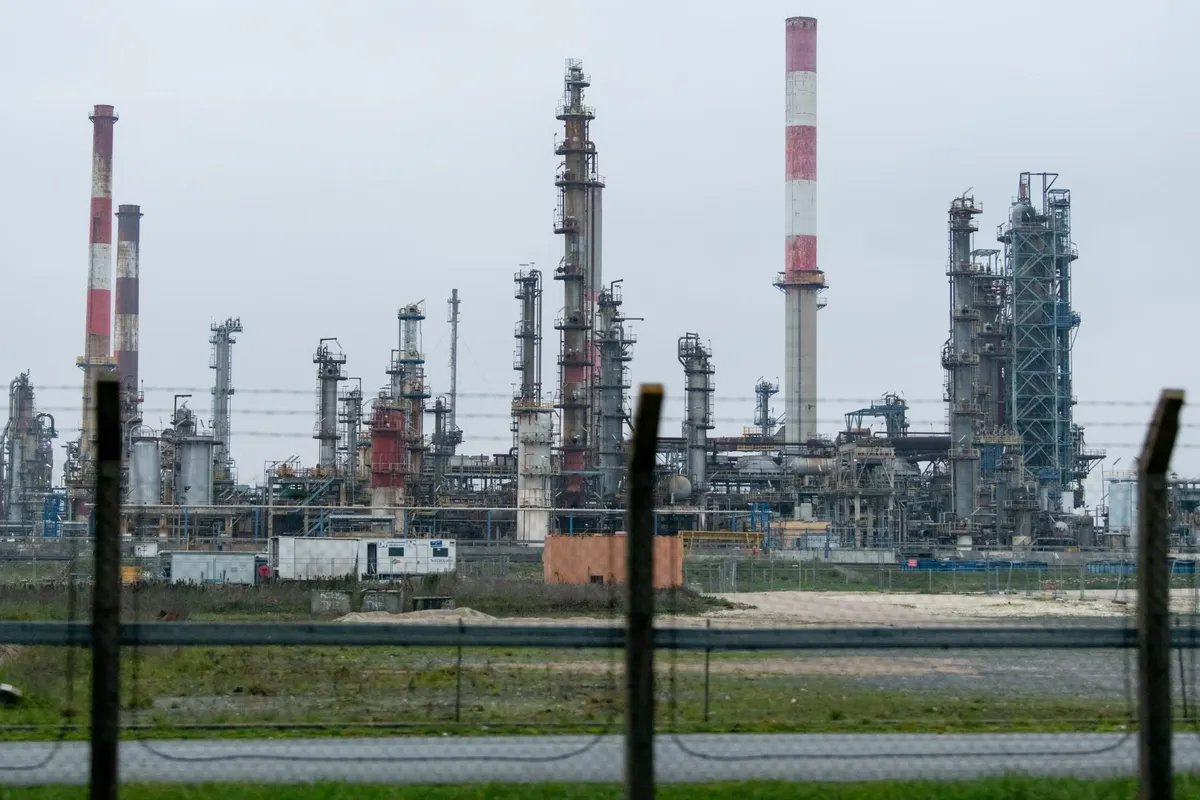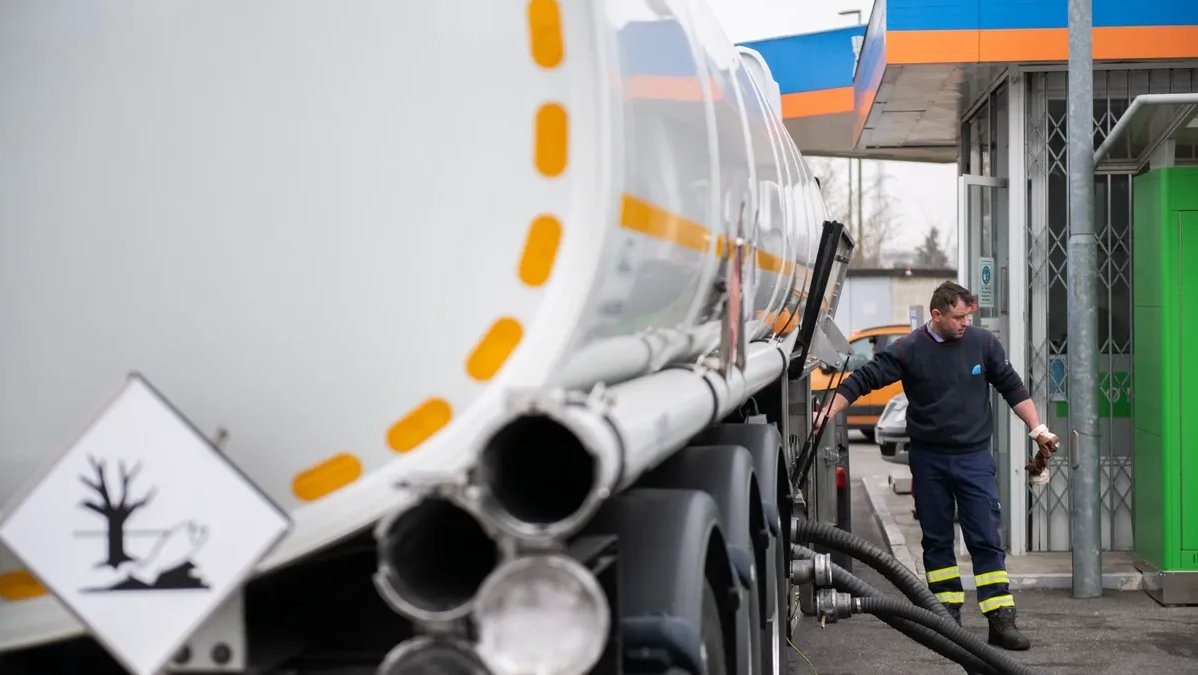The countries of the European Union agreed on introducing a price cap on selling Russia’s oil to third countries last week. This decision was long anticipated, although its exact parameters remained unknown. Moreover, an embargo on importing Russia’s oil to the EU countries also kicked in on 5 December. We asked Marcel Salikhov, an economist and the current president of the Institute for Energy and Finance think tank to explain how the new mechanism will work and how hard it is going to hit Russia’s oil and gas revenues.

Marcel Salikhov
economist
Why was it so hard for the EU countries to agree on a Russian oil price cap?
Issues like this usually present challenges in the EU. Other Western countries are no longer buying Russia’s oil and petroleum products. Europe, however, continued doing so until recently, and its companies play a key role in terms of transportation, insurance, and so on. The US and Canadian companies are not involved in this, so little actually depends on them.
The previous sanction packages the EU introduced had exclusions, and the current embargo (the EU has banned the sea import of Russia’s crude oil starting 5 December; petroleum products will also be subject to the restriction starting 5 February 2023 — Novaya-Europe) has an exclusion for Hungary. There were different stances, ranging from the $30 dollars per barrel price cap voiced by Poland up to the $70 per barrel cap backed by Greece and Malta. Many ship operators are registered in Malta and Greece, and those companies transport Russia’s oil, too. Therefore, the economies of these two countries depend on this sector.
The member states eventually agreed on a $60 per barrel cap, and it is in fact a pretty mild option, which is close to, or even above the current price level.
At the same time, the price cap does not include transportation fees, and this is very important. If we suppose that it currently costs Russian companies $20 per barrel to transport oil to Asia, then the price of an Urals barrel is $60 plus transportation fees. Therefore, I believe that the price cap itself will have little to no effect.
It is a pretty mild option in terms of secondary sanctions, too (reselling Russia’s oil is not restricted by the EU regulations — Novaya-Europe). In some part this was a deliberate decision so as not to cause big issues with the current supplies of Russian oil.
How did Hungary manage to lobby through an exemption from the price cap?
Through negotiation. Hungary is generally against any sanctions. So, the EU makes them exempt to avoid them vetoing every decision. They are allowed to buy Russian oil via the Druzhba pipeline, but only to the extent necessary to meet the needs of their own market. This volume is fixed, and they may not buy more oil and potentially refine it and resell it to other European countries.

Signs reading “out of use” on empty fuel pumps at a MOL Hungary Oil & Gas Plc petroleum station in Budapest. Photo: Akos Stiller / Bloomberg / Getty Images
Some countries, including Ukraine and Poland, insisted that the cap at $60 is too high. Why cannot it be lower?
This is how the market works. If we put technical details aside, the price cap will work when there’s opportunity to replace Russia’s oil. Russia has reduced oil production, and the only country that can increase its production in the same volume is Saudi Arabia, but it does not want to. There are no sources for replacement. The EU could have negotiated a production increase with Iran or Saudi Arabia to make it work. Or convince China and India to join the price cap mechanism, but they haven’t joined.
There are no conditions under which the $30 price cap would work, so adopting it is pointless. This is why they adopt a price cap that does not affect much, and they do it deliberately to some extent. The reason is politics: “There will be a price cap, we’re going to introduce it”. However, it’s impossible to make it efficient at the moment. Maybe this will start working after a certain period. But now Russia will be bypassing this price cap, and it will still be an inefficient mechanism.
That is, there will be no special effect from the price cap on the Russian economy?
In my opinion, the EU has adopted an option that will not let the price cap work in a normal way. The reason is that the Western countries are trying to dictate terms upon which third countries may trade between themselves.
Say, Russia is selling oil to India, and the Western countries are trying to determine the price at which this trade should be carried out.
Obviously, it is difficult to do because those are some other countries.
So, the price cap itself will not make any real effect. The EU embargo will, though. Russia’s oil exports will decrease next year, and it looks like its exports of petroleum products will decrease even more as Russia’s exports were mainly Europe-oriented.
Will the discount on Russia’s oil brands increase?
Yes, it’s more likely to increase than not. It used to stand at $30–35 this spring, and at $20–25 in recent months. Perhaps it’s going to increase to $30 now so as to create additional motivation for the buyers. On the one hand, Russia will be losing a little money, but on the other, it will maintain its export volume.
How will this affect the cost ratio of different Russian oil brands?
It is unclear at the moment as the price cap is common for all brands. There are three main brands there: Urals, ESPO, and Siberian Light. Urals is usually the cheapest one since it contains much sulphur. ESPO and Siberian Light are being supplied to the Asian market; in fact, those have never been supplied to Europe. ESPO was being traded with no discount prior to the price cap discussion. Now the discount has increased. Everything depends on how willing Asian buyers will be to abide by the price ceiling. It is unclear so far how this will affect the ESPO brand in particular.
What if Russia starts selling oil for more than $60 per barrel, will it be forced to do so with no insurance?
There’s no way of selling oil with no insurance, no buyer will ever agree to buy such oil. However, Russia may use other insurance mechanisms, unrelated to Western companies, for instance, the Russian National Reinsurance Company. Perhaps Russia will be offering state-protected insurance to its buyers. This is also insurance, although from a Russian company, and not a British one. If, say, India is ready to accept Russian insurance coverage from Russian companies with state guarantee, what can anyone do about it? I believe that introducing both the oil embargo and the price cap for third countries is somewhat destroying the idea of the price cap.
Why was the rule about reviewing the price cap every two months introduced?
If the price cap is fixed at a certain level, then it is meaningless as the price can go down or up.
If the price drops to $50 or $40 in six months, what’s the point in having the $60 price cap then? So, it’s somewhat logical to introduce a floating price cap. The next time it will be reviewed is in two months.
Are there any other countries Russia might redirect its supplies to?
The countries that are now introducing the price cap have also already introduced an embargo on Russia’s oil. Therefore, they have already given up on buying Russia’s oil. From now on, Russia will only supply oil to the countries that have not joined the price cap and the embargo, namely, any countries outside G7 and the EU. The supplies will go to India and other Asian countries. Possibly to South America, too.
From what sources will the EU replace Russia’s supplies in 2023 and afterwards?
The Middle East and North Africa. There are no alternatives. It is possible that the US might increase production and exports. But still, the US is a net importer of oil, so it cannot replace Russia. So, the Middle East is a more likely option.

Photo: Benjamin Girette / Bloomberg / Getty Images
Russia has said that it would stop selling oil to the countries that had supported the price cap. What is this threat about?
The countries that are introducing the price cap have already introduced the embargo. Therefore, they have already stopped buying Russia’s oil, independently from any Russia’s moves. However, the statements that Alexander Novak [Russia’s Deputy PM] made about Russia stopping supplies of oil to the countries supporting the price cap have played their role anyway. Other countries, such as China, India, and Turkey, did not join the price cap because they feared that otherwise Russia would stop providing them with oil. So, these statements have worked in some respects.
There was news that Russia had purchased 109 old tankers and now hopes that those would help it transport oil without any price restrictions. Will this “shadow fleet” also be used to bypass the sanctions?
We don’t know exactly how many tankers they purchased, the Financial Times wrote about it, providing an estimate from an insurance broker. So, we don’t know for sure how many tankers Russia has purchased: maybe more or maybe fewer [than 109]. It is clear that companies are forced to buy their own tankers to reduce the risks of facing sanctions and become independent from ship operators that might refuse to transport oil. Perhaps there will now be a certain drop in exports due to the shortage of tankers. But, most likely, Russia’s companies will continue buying old tankers and set up their own fleet; this is what Iran does. Iran has its own tanker fleet which is completely independent from foreign companies in terms of maritime oil transportation.
The last time the EU threatened to introduce a price cap, OPEC+ decided to reduce production by 2 million barrels per day. The cartel held another meeting last weekend, but no countermeasures were implemented. Why?
They decided not to change anything this time. The November production data shows that Saudi Arabia and its allies, such as Kuwait and the UAE, are cutting their production. They reduced production by 700-800 thousand barrels a day altogether in November, which is quite a lot. This was their way to demonstrate that they do not like the price cap mechanism, and that they are willing to help Russia, so to say, by reducing production and making the implementation of the price cap more challenging. On the other hand, another reason they did this is that they want to raise oil prices.
You said in your previous interview that a comfortable oil price for Russia is $90–100 per barrel. How hard will the current price hit Russia’s budget revenues?
Obviously, lower oil prices reduce the budget’s oil and gas revenues. But $90–100 per barrel is a brilliant scenario for Russia, while $60 is still pretty fine. Russia’s oil and gas revenues will drop by approximately 10% next year. On the other hand, the government may compensate for the revenues drop by raising taxes. This is already happening: Russia is boosting its severance taxes. So, the price cap will not have a significant impact on Russia’s oil and gas revenues.
Join us in rebuilding Novaya Gazeta Europe
The Russian government has banned independent media. We were forced to leave our country in order to keep doing our job, telling our readers about what is going on Russia, Ukraine and Europe.
We will continue fighting against warfare and dictatorship. We believe that freedom of speech is the most efficient antidote against tyranny. Support us financially to help us fight for peace and freedom.
By clicking the Support button, you agree to the processing of your personal data.
To cancel a regular donation, please write to [email protected]

